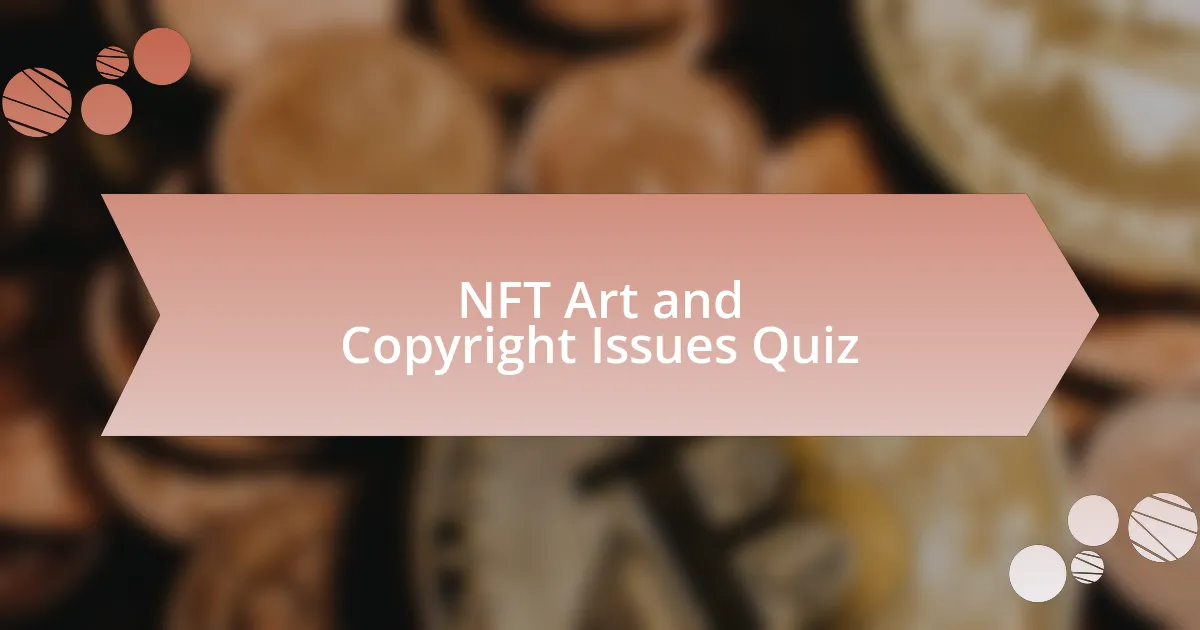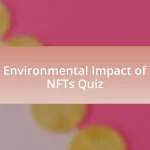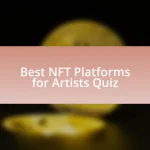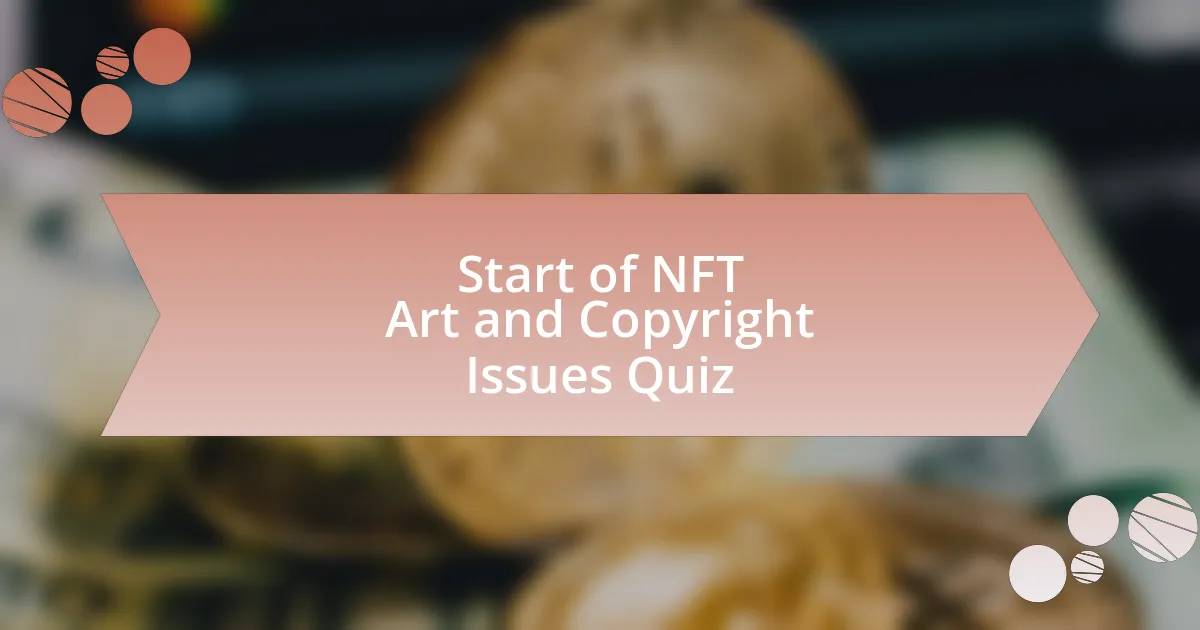
Start of NFT Art and Copyright Issues Quiz
1. What is NFT copyright infringement?
- NFT copyright infringement occurs when an individual mints an NFT without having the intellectual property rights to reproduce, communicate, or sell the work to the public.
- NFT copyright infringement is when an NFT is created and does not have a blockchain record.
- NFT copyright infringement happens when an artist sells an NFT and does not get paid.
- NFT copyright infringement occurs when an NFT is minted on an unsupported platform.
2. What are common types of NFT copyright infringement?
- Unauthorized reproduction
- Digital asset storage
- Token minting process
- Original artwork sale
3. How does copyright law apply to NFT art?
- NFTs do not change the operation of copyright law; the underlying work is protected and owned by the artist.
- Copyright law is irrelevant in the context of NFT art transactions.
- Ownership of an NFT automatically includes copyright to the artwork it represents.
- NFTs grant full ownership of the underlying artwork to the NFT holder.
4. Does the smart contract need to specify who owns the copyright?
- No, the smart contract does not need to mention copyright ownership.
- Yes, the smart contract should specify who owns the copyright if an NFT is minted from digital art.
- No, copyright ownership can be inferred from the NFT itself.
- Yes, copyright ownership is implied and does not need to be stated.
5. What is the risk of NFT minting?
- Risks include issuing refund guarantees for buyers.
- Risks include having too many NFTs in circulation.
- Risks include minting the wrong NFT.
- Risks include creating highly valuable NFTs.
6. How should a platform address artist-imposed future resale royalties?
- The platform should require buyers to negotiate royalties directly with the artists after each sale.
- The platform should eliminate resale royalties to attract more buyers and increase sales volume.
- The platform should include terms in sales agreements and conditions of sale to automatically pay out future resale royalties to creators when the NFT is sold.
- The platform should charge artists a flat fee for listing their NFTs regardless of resale royalties.
7. Is it necessary for the platform to get involved in collecting royalties or enforcing terms?
- Yes, the platform is responsible for policing all copyright issues.
- No, the platform can ignore royalty agreements entirely.
- No, royalty collection and enforcement are automatically handled by the blockchain.
- Yes, the platform must collect royalties manually for every transaction.
8. How does an artist know when a transfer has occurred and thus a payment is due to the artist?
- The artist is notified automatically by the blockchain because their identity is embedded in the NFT.
- The artist is informed through an email every time a sale occurs.
- The artist must manually check their sales dashboard for updates.
- The artist receives a monthly statement from the platform indicating any sales.
9. What are the benefits of NFTs?
- Making all digital art free.
- Introducing scarcity in digital art.
- Eliminating traditional art completely.
- Ensuring no one can sell artwork.
10. What do you mean by an NFT drop?
- An NFT drop means the destruction of an NFT to create scarcity in the marketplace.
- An NFT drop occurs when someone cancels an NFT transaction before it`s complete.
- An NFT drop is when a digital artwork is given away for free without any conditions.
- An NFT drop refers to the launch of a non-fungible token with a specified date and time of minting, along with the minting price.
11. Can NFT metadata be changed?
- Yes, NFT metadata can be changed by the owner.
- Yes, but only by the original creator regardless of ownership.
- No, changing NFT metadata requires a platform-wide update.
- No, NFT metadata is permanently fixed at creation.
12. Are NFTs subject to legal risks?
- Yes, NFTs are subject to legal risks, especially with copyright issues.
- No, NFTs have no legal risks whatsoever.
- Yes, NFTs are completely immune to legal scrutiny.
- No, NFTs face no copyright concerns at all.
13. Do you own the copyright to your NFT?
- Yes, all NFT owners automatically get copyright ownership.
- No, typically you do not own the copyright to your NFT.
- No, NFTs come with exclusive copyright ownership.
- Yes, owning an NFT grants you full copyright rights.
14. What happens if you buy an NFT representing copyrighted work without permission?
- You gain exclusive ownership of the copyrighted work.
- You could be involved in copyright infringement, which can lead to legal issues.
- You are immune to any legal consequences.
- The NFT becomes public domain and is free to use.
15. How can artists monetize their work using NFTs?
- Artists can monetize through social media promotions and ads.
- Artists can monetize their work by tokenizing it and deciding on usage rights.
- Artists make money by selling physical copies of their work.
- Artists solely rely on gallery exhibitions to sell their art.
16. Why are copyrights important in the NFT space?
- Copyrights are unimportant since NFTs are unique digital assets irrelevant to ownership.
- Copyrights are important because minting or purchasing NFTs representing copyrighted work can easily result in legal issues due to copyright infringement.
- Copyrights protect only the seller`s interests and do not apply to buyers in the NFT market.
- Copyrights are needed only for physical art, not digital works or NFTs.
17. What happens if an NFT is minted without permission from the copyright owner?
- The creator will receive a fine but won`t face legal consequences.
- The creator of the NFT could face legal action for copyright infringement.
- The NFT will be permanently deleted from the blockchain.
- The NFT will automatically become void and worthless.
18. Can an NFT be corrupted?
- An NFT can only be deleted, not corrupted.
- No, NFTs are immune to corruption.
- Technically, yes, an NFT can be corrupted.
- Only physical assets can be corrupted.
19. What is the impact of NFT copyright infringement on brands?
- The impact includes damage to brand reputation, potential legal action, and financial losses.
- The impact guarantees increased sales for brands.
- The impact only affects individual artists, not brands.
- The impact results in brand endorsement opportunities.
20. How does the U.S. copyright law protect digital works of art?
- U.S. copyright law allows anyone to use digital works freely.
- U.S. copyright law requires registration to protect digital works.
- U.S. copyright law offers protection only to physical art forms.
- U.S. copyright law protects all digital works automatically without registration.
21. What is the significance of the Hermès vs. Mason Rothschild case?
- The case ruled that NFTs automatically grant copyright to all purchasers.
- The case demonstrated that NFTs can freely use any digital content regardless of copyright.
- The case established that using trademarked content in NFTs without permission is illegal and can result in significant damages.
- The case highlighted the benefits of NFT ownership for creators in the digital space.
22. What is the outcome of Nike vs. StockX?
- StockX was found to have no rights and shut down.
- The case is ongoing, highlighting brand IP rights.
- Nike won, and StockX must pay damages.
- Both parties agreed to a settlement out of court.
23. How does the blockchain nature of NFTs affect dispute resolution?
- The blockchain nature of NFTs limits the ability to resolve disputes regarding ownership quickly.
- The blockchain nature of NFTs makes all disputes automatically resolved by the sales platform.
- The blockchain nature of NFTs allows the current owner to easily pursue remedies against the artist directly.
- The blockchain nature of NFTs prevents any form of communication between owners and artists.
24. What are the risks associated with transferring an already minted NFT?
- Increased visibility
- Hacking
- Lower resale value
- Minting errors
25. Can an artist stop unlawful reproduction of a digital work of art using copyright law?
- Yes, an artist can stop unlawful reproduction of a digital work of art using copyright law.
- Artists must sell the copyright to stop unlawful reproduction.
- No, copyright law does not apply to digital art.
- Only the NFT holder can enforce copyright.
26. What is the role of smart contracts in NFT minting?
- Smart contracts specify who owns the copyright and what rights are associated with the NFT, ensuring that the platform displays the work correctly.
- Smart contracts streamline the transfer process of NFTs without addressing ownership rights.
- Smart contracts determine the minting price of the NFT and its resale value.
- Smart contracts manage the storage of the NFT on the blockchain without involving copyright.
27. How does the ownership of NFTs relate to the ownership of the underlying digital asset?
- The ownership of NFTs is separate from the ownership of the underlying digital asset.
- The NFT represents a lease agreement for the underlying digital asset.
- NFT ownership means you can alter the underlying digital asset as you wish.
- Owning an NFT grants you full rights to the underlying digital asset.
28. What happens if multiple copies of an NFT are created?
- Multiple copies ensure NFT authenticity.
- Multiple copies can decrease NFT value.
- Multiple copies have no effect on NFT ownership.
- Multiple copies will increase NFT visibility.
29. How do NFTs introduce scarcity in digital art?
- NFTs create scarcity by allowing unlimited copies of the same digital asset.
- NFTs introduce scarcity by making all digital art available for free online.
- NFTs generate scarcity through random distribution across multiple platforms.
- NFTs introduce scarcity by creating a unique digital asset that cannot be easily duplicated.
30. What are the implications of not registering copyrights for digital works?
- Not registering copyrights guarantees full ownership of the work.
- Not registering copyrights has no effect on the work`s value.
- Not registering copyrights limits legal options against infringement.
- Not registering copyrights prevents anyone from using the work.
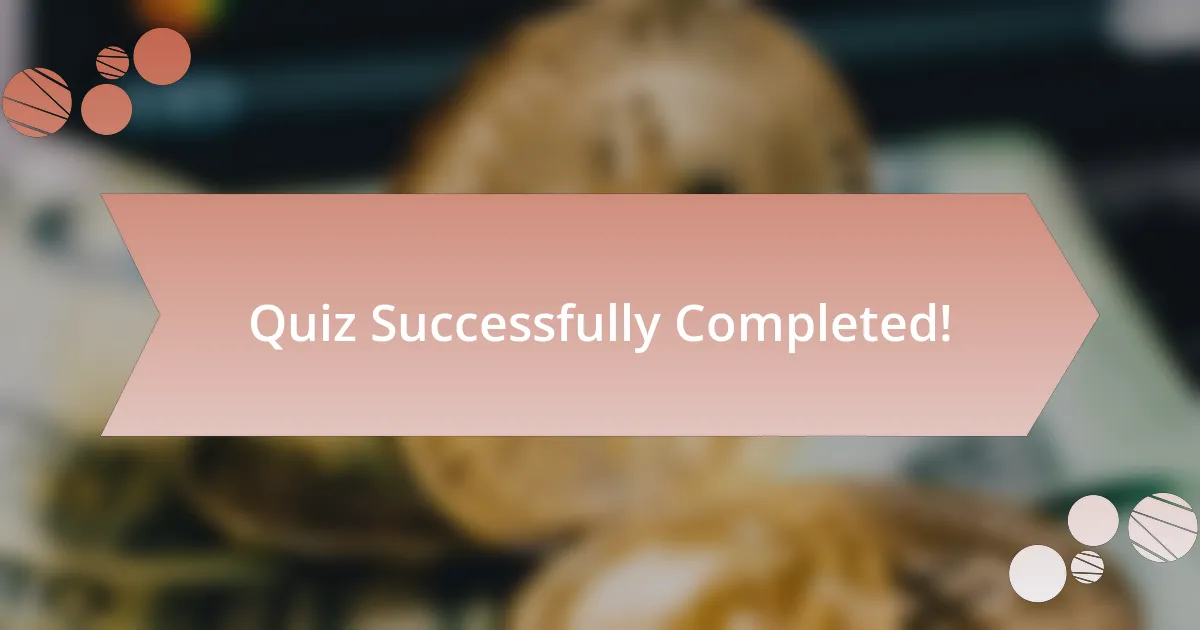
Quiz Successfully Completed!
Congratulations on finishing the quiz on ‘NFT Art and Copyright Issues’! We hope you found the experience enjoyable and informative. This quiz not only tested your knowledge but also highlighted key concepts surrounding copyright in the realm of NFT art. Understanding these issues is crucial for artists, collectors, and enthusiasts alike.
Throughout the quiz, you likely learned about the intersection of technology and art. We covered topics such as ownership rights, licensing, and the legal challenges faced by creators in the NFT space. These insights are valuable as they inform how art is created, shared, and protected in the digital age. Grasping these concepts can empower you to navigate the evolving landscape of NFT art more effectively.
If you’re eager to dive deeper into this topic, we invite you to continue exploring our next section on ‘NFT Art and Copyright Issues.’ This resource will provide you with a broader understanding of the implications and nuances involved. Expanding your knowledge can help you stay informed and engaged in this exciting area of art and technology.
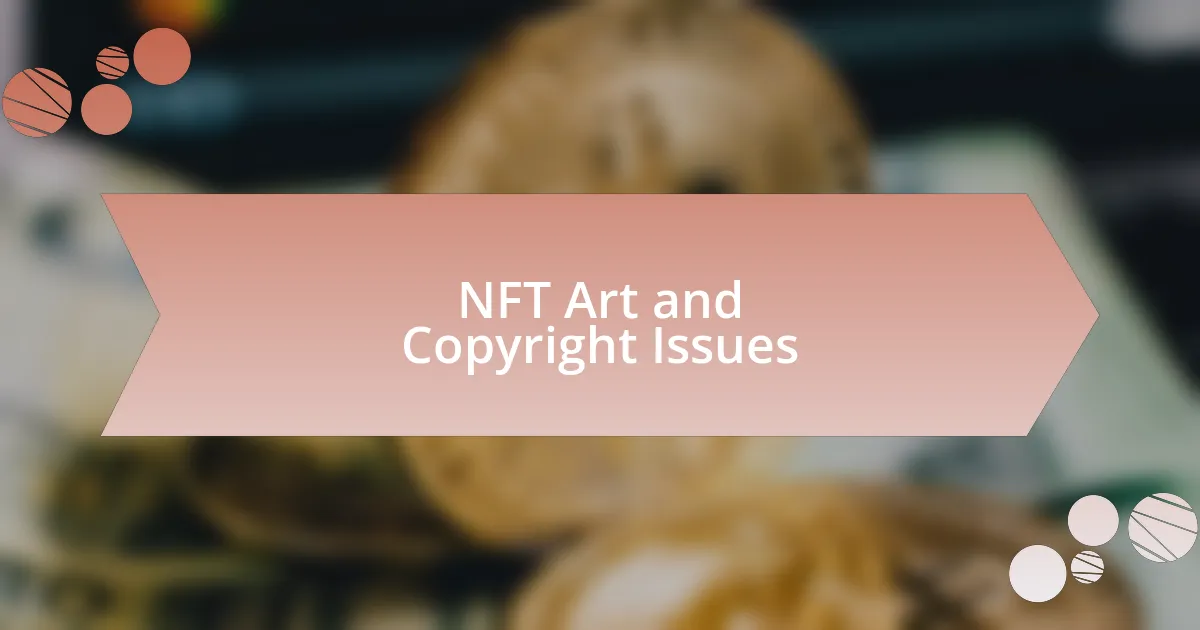
NFT Art and Copyright Issues
Understanding NFTs and Their Role in Digital Art
Non-Fungible Tokens (NFTs) are unique digital assets that represent ownership of a specific item or piece of content. In the context of digital art, NFTs allow artists to sell their work in a way that confirms authenticity and ownership. Each NFT is stored on a blockchain, offering a transparent ledger of ownership that cannot be altered. This technology provides a novel way for artists to monetize their creations while ensuring that buyers can verify the originality of the art they purchase.
The Intersection of Copyright Law and NFTs
Copyright law protects original works of authorship, giving creators exclusive rights to reproduce, distribute, and display their art. When an NFT is created, it typically does not automatically transfer copyright ownership of the underlying artwork. This means that artists may retain their copyright even after selling an NFT. Buyers need to understand the distinction between owning the NFT and owning the actual copyright to the digital art.
Common Copyright Issues in NFT Sales
One major copyright issue is the unauthorized use of an artist’s work in NFT sales. This occurs when someone mints an NFT using digital art without the creator’s permission. Such actions can lead to copyright infringement claims. Additionally, the ambiguity surrounding whether NFT buyers receive any rights to the artwork can lead to misunderstandings, prompting legal disputes over ownership and usage rights.
Legal Considerations for Artists Creating NFTs
Artists creating NFTs must ensure they have the rights to the artwork before minting and selling it. This includes having permission for any elements incorporated from other works, such as music or images. Furthermore, artists should consider licensing agreements if they wish to grant specific rights to NFT buyers. Clear terms in the NFT contract can help define what rights are transferred and what remains with the artist.
The Future of Copyright in the Age of NFTs
The rise of NFTs prompts a re-evaluation of existing copyright laws and regulations. Legal frameworks may need to adapt to address issues of digital ownership and how rights are assigned in this new market. There is ongoing debate about how NFTs could impact traditional copyright concepts, including moral rights and resale rights. As the NFT landscape evolves, future legal developments will be crucial in determining how copyright protections are enforced in this dynamic space.
What are the main copyright issues surrounding NFT art?
The main copyright issues surrounding NFT art include the unauthorized use of copyrighted works, the lack of clarity on ownership rights, and the potential for infringement claims. NFT creators may mint works that they do not own, violating the rights of original artists. Additionally, the purchase of an NFT does not inherently grant copyright ownership, leading to confusion about what rights buyers acquire. This reflects ongoing disputes in court cases, such as the lawsuit against NFT marketplace OpenSea for facilitating sales of stolen art.
How does copyright law apply to NFT art?
Copyright law applies to NFT art by protecting the underlying artistic works from unauthorized reproduction, distribution, and display. When an artist creates a work and mints it as an NFT, the original copyright holder retains rights unless explicitly transferred. The Digital Millennium Copyright Act (DMCA) can be invoked by artists to protect their works from infringement on NFT platforms. Courts recognize the need for existing copyright frameworks to adapt to new technologies, including NFTs.
Where can artists register their copyright for NFTs?
Artists can register their copyright for NFTs with the United States Copyright Office. Registration can occur online, providing legal evidence of ownership. This process involves submitting a completed application, a copy of the work, and the applicable fee. Registration is crucial, as it adds a layer of protection against infringement and allows creators to pursue legal action more effectively.
When should artists consider seeking legal advice regarding NFTs?
Artists should consider seeking legal advice regarding NFTs when creating, buying, or selling NFTs that involve potentially copyright-protected works. This advice is particularly important if the artists use third-party images, collaborate with others, or think about licensing their NFTs. Legal counsel can help navigate agreements, copyright transfers, and potential infringement risks, ensuring proper rights management.
Who is responsible for copyright infringement in the NFT space?
The party responsible for copyright infringement in the NFT space can be the artist, the NFT creator, or the marketplace facilitating the sale. If an artist mints an NFT using someone else’s art without permission, they are liable. Marketplaces may also face liability if they ignore infringing content. Legal precedents suggest that platforms must take reasonable steps to address copyright claims by artists, reinforcing responsibility at multiple levels.

